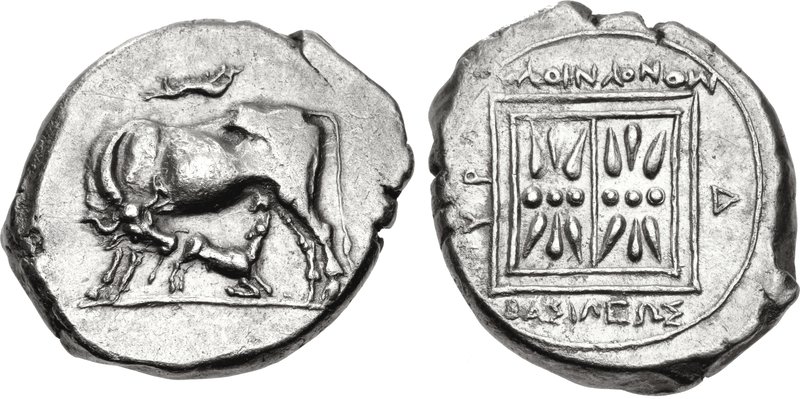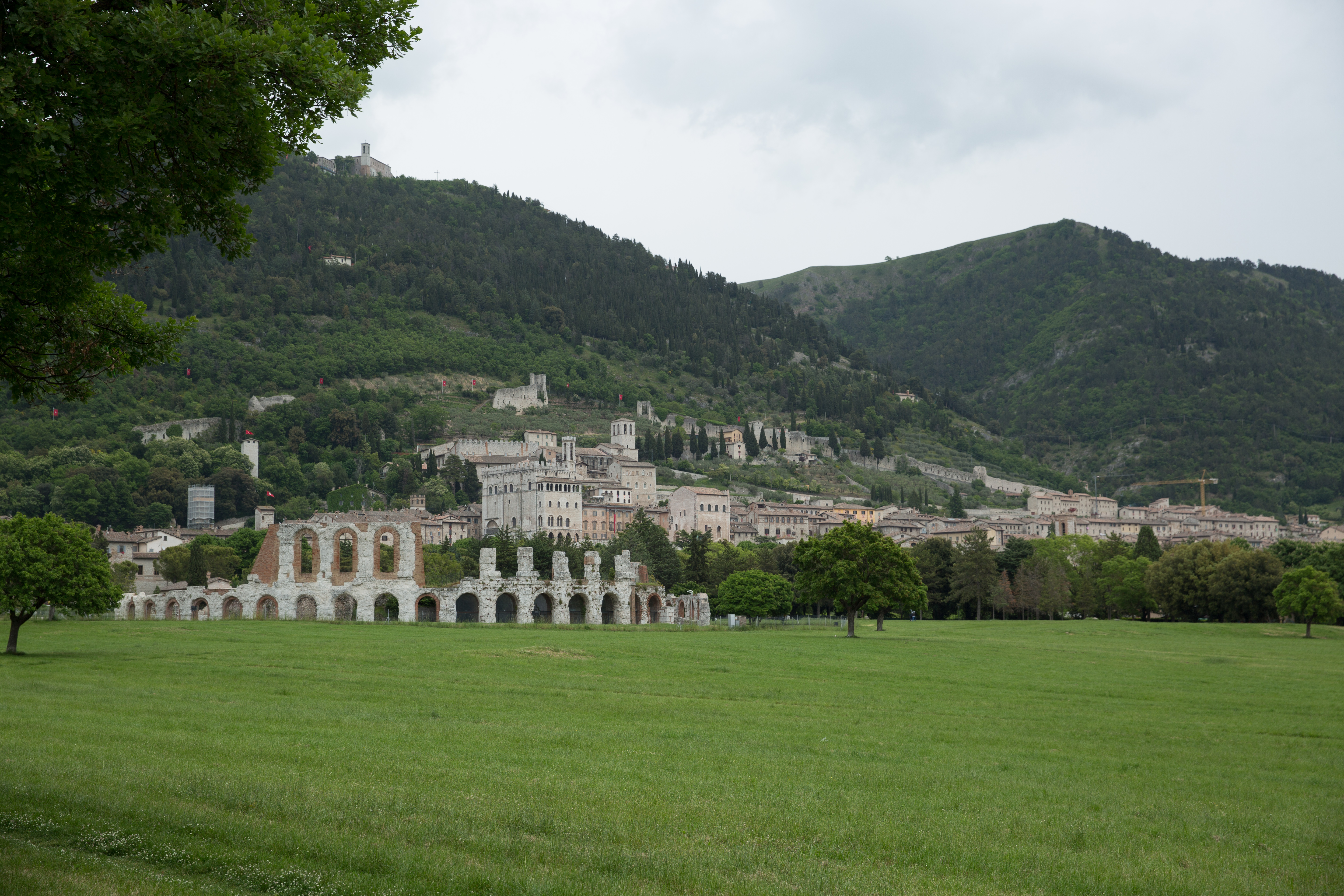|
Etuta
Etuta (ruled 169 – 168 BC) was an Illyrian queen of the Ardiaean Kingdom, married to Gentius. Etuta was a Dardanian princess, the daughter of Monunius II of Dardania. Biography Etuta was earlier engaged to Gentius' brother, Plator, whom Gentius treacherously killed. Etuta married Gentius in 169 BC. Gentius' objective was to secure the inheritance of the Ardiaean throne, but Livy reports he also envied his brother because he was going to marry Etuta. However, the marriage does not seem to have secured an Ardiaean–Dardanian alliance and as a result Gentius allied himself with Perseus of Macedon the enemy of his father-in-law.The Illyrians by J. J. Wilkes,1992, , page 172, "...Roman allies in the previous war against Macedonia. In 169 BC there was a report that Gentius had his brother Plator killed because his plan to marry Etuta..." After the defeat of Gentius in 168 BC, Etuta along with other important Illyrians were taken to Italy. Etuta and the royal family were se ... [...More Info...] [...Related Items...] OR: [Wikipedia] [Google] [Baidu] |
Gentius
Gentius ( grc, Γένθιος, "Génthios"; 181168 BC) was an Illyrian king who belonged to the Labeatan dynasty. He ruled in 181–168 BC, being the last attested Illyrian king. He was the son of Pleuratus III, a king who kept positive relations with Rome. The capital city of the Illyrian kingdom under Gentius was Scodra. In 180 BC, during his early reign, the Dalmatae and Daorsi declared themselves independent from his rule and the city of Rhizon abandoned him prior to his defeat, receiving immunity from the Romans. He married Etuta, the daughter of the Dardanian king Monunius II. In 171 BC, Gentius was allied with the Romans against the Macedonians, but in 169 BC he changed sides and allied himself with Perseus of Macedon. The southernmost city of the Illyrian kingdom was Lissus (now Lezhë, Albania), a situation established since the First Illyrian War. He arrested two Roman ''legati'', accusing them of not coming as emissaries but as spies. Gentius destroyed the cities ... [...More Info...] [...Related Items...] OR: [Wikipedia] [Google] [Baidu] |
Plator
Plator (? –169 BC) the Illyrian was brother to King Gentius, the last Illyrian king of the Ardiaean State. Plator may have been killed because he wanted to marry Etuta in 169 BC. She was the daughter of Monunius and was married to Gentius himself. The personal name Plator was very common among Illyrians, attested among the southern Illyrians, Delmatae, and Pannoni; sometimes in lands north of the Delmatae it was also spelled Pletor. The name is also found in derivatives such as Platino and Platoris. Among the Liburnians the name is found as Plaetor; among the Veneti as Plaetorius. The ''gens'' name Plaetorius is also found among the Romans, and a Gaius Plaetorius was one of the three ambassadors sent to King Gentius on behalf of Rome's allies.Livy Titus Livius (; 59 BC – AD 17), known in English as Livy ( ), was a Ancient Rome, Roman historian. He wrote a monumental history of Rome and the Roman people, titled , covering the period from the earliest legends of Rome ... [...More Info...] [...Related Items...] OR: [Wikipedia] [Google] [Baidu] |
Illyrian Queens
The Illyrians, ; la, Illyrii}) were a conglomeration of Indo-European peoples and tribes in the Balkan Peninsula, Southeastern Europe. They spoke the Illyrian language and practiced a multitude of common religious and cultural practices. Many of Illyrian groups formed a distinct tribal mode of social organisation, which survived much later in the form of the Albanian tribal system. In late Iron Age and early classical antiquity, the first polities of the area would be created by tribal groupings, including the Taulantii and Dardani. The most powerful Illyrian states of the area, the Ardiaean kingdom, emerged in the 3rd century BC during the rule of Agron and Teuta. The Illyrians came into conflict with Roman Republic and were defeated in the Illyrian Wars, which were followed by many revolts. The largest and last of them was the Great Illyrian Revolt (6-9 BC). The beginning of the integration of the region of Illyria in the Roman world followed the revolt and saw many Illyr ... [...More Info...] [...Related Items...] OR: [Wikipedia] [Google] [Baidu] |
Monunius II Of Dardania
Monunius (Ancient Greek Μονούνιος; ruled ''c.'' 176 – 167 BC) was an Illyrian king of the Dardanian State who lived in the late 3rd century BC and early 2nd century BC. Monunius attested first in 176 BC was the son of Longarus, a Dardanian king who caused much trouble to Macedonia from 230 BC onwards. He succeeded his brother Bato to the Dardanian throne. Monunius was known for his victory he inflicted on the Bastarnae during the Bastarnae Invasion of Dardania. Etuta the daughter of Monunius married the Ardiaean King Gentius in 169 BC. Since the dynastic marriage relations seem not to have brought an alliance between the two Illyrian States, in 168 BC Gentius allied with Perseus, the enemy of his father-in-law.The Illyrians to the Albanians Neritan Ceka 2005 Many Dardanian kings of the same time were named Monunius and there seems to be some confusionThe Illyrians by J. J. Wilkes, 1992, , page 146, "Nor is it certain if this was the same ruler who gained power ov ... [...More Info...] [...Related Items...] OR: [Wikipedia] [Google] [Baidu] |
Ardiaean Kingdom
The Ardiaei were an Illyrian people who resided in the territory of present-day Albania, Serbia, Montenegro, Bosnia and Herzegovina and Croatia between the Adriatic coast on the south, Konjic on the north, along the Neretva river and its right bank on the west, and extending to Lake Shkodra to the southeast. From the 3rd century BC to 168 BC the capital cities of the Ardiaean State were Rhizon and Scodra. The Ardiaean kingdom was transformed into a formidable power—both on land and sea—under the leadership of Agron of Illyria. During this time, Agron invaded parts of Epirus, Corcyra, Epidamnos and Pharos in succession, establishing garrisons there. The Ardiaean realm became one of Rome's major enemies, and the primary threat to it in the Adriatic Sea. A series of wars were fought between the Roman Republic and the Illyrian (Ardiaean- Labaeatan) kingdom in the 3rd–2nd centuries BC. Polybius (203 BC–120 BC) wrote that they were subdued by the Romans in 229 BC. The Epitome ... [...More Info...] [...Related Items...] OR: [Wikipedia] [Google] [Baidu] |
Perseus Of Macedon
Perseus ( grc-gre, Περσεύς; 212 – 166 BC) was the last king ('' Basileus'') of the Antigonid dynasty, who ruled the successor state in Macedon created upon the death of Alexander the Great. He was the last Antigonid to rule Macedon, after losing the Battle of Pydna on 22 June 168 BC; subsequently, Macedon came under Roman rule. Early life Perseus was the son of king Philip V of Macedon and a concubine, probably Polycratia of Argos. His father spent most of his reign attempting to maintain Macedonian hegemony over Greece against heavy Greek resistance and, in his later reign, against a expansionist Roman Republic. In this regard Philip V would fail as following defeat in the Second Macedonian War, he would have to accept Roman power in Greece and would later help Rome in the War against Nabis (195 BC) and Aetolian War (191-189 BC). Perseus is recorded as having commanded Macedonian troops in both the Second Macedonian War and Aetolian War. Being a son of a concubine, Per ... [...More Info...] [...Related Items...] OR: [Wikipedia] [Google] [Baidu] |
Italy
Italy ( it, Italia ), officially the Italian Republic, ) or the Republic of Italy, is a country in Southern Europe. It is located in the middle of the Mediterranean Sea, and its territory largely coincides with the homonymous geographical region. Italy is also considered part of Western Europe, and shares land borders with France, Switzerland, Austria, Slovenia and the enclaved microstates of Vatican City and San Marino. It has a territorial exclave in Switzerland, Campione. Italy covers an area of , with a population of over 60 million. It is the third-most populous member state of the European Union, the sixth-most populous country in Europe, and the tenth-largest country in the continent by land area. Italy's capital and largest city is Rome. Italy was the native place of many civilizations such as the Italic peoples and the Etruscans, while due to its central geographic location in Southern Europe and the Mediterranean, the country has also historically been home ... [...More Info...] [...Related Items...] OR: [Wikipedia] [Google] [Baidu] |
Iguvium
Gubbio () is an Italy, Italian town and ''comune'' in the far northeastern part of the Italian province of Perugia (Umbria). It is located on the lowest slope of Mt. Ingino, a small mountain of the Apennine Mountains, Apennines. History The city's origins are very ancient. The hills above the town were already occupied in the Bronze Age. As ''Ikuvium'', it was an important town of the Umbri in pre-Roman times, made famous for the discovery there in 1444 of the Iguvine Tablets, a set of bronze tablets that together constitute the largest surviving text in the Umbrian language. After the Roman conquest in the 2nd century BC – it kept its name as ''Iguvium'' – the city remained important, as attested by its Roman theatre, the second-largest surviving in the world. Gubbio became very powerful in the beginning of the Middle Ages. The town sent 1000 knights to fight in the First Crusade under the lead of Girolamo Gabrielli, and according to an undocumented local tradition, they were ... [...More Info...] [...Related Items...] OR: [Wikipedia] [Google] [Baidu] |
%2C_Blütenstand.jpg)



